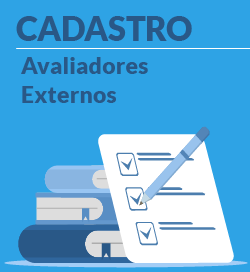INNOVATIVE TECHNOLOGY FOR CONTINUOUS PHARMACOLOGICAL MONITORING IN THE ELDERLY: CHALLENGES AND OPPORTUNITIES FOR EFFECTIVE HEALTH MANAGEMENT
Resumo
Background: Innovation and effectiveness in healthcare management must remain focused on the challenges and opportunities associated with technology for pharmacological monitoring. The pursuit of new technologies places great importance on the usability of healthcare systems, ensuring that older adults with cognitive and physical limitations can utilize these tools effectively. This study proposes a comprehensive analysis of best practices and innovations in healthcare. Purpose: The objective of this study is to identify the main needs and challenges faced by older adults in pharmacological monitoring. Create an initial prototype as a proposal for pharmacological monitoring and assisted technology implementation for pharmaceutical management without usability support. Methods: Present the proposal for review by the CEP, then conduct interviews with focus groups of older adults, caregivers, and healthcare professionals. Apply questionnaires to collect data on medication habits, challenges faced, and expectations regarding the technology. Analyze existing studies and innovations related to pharmacological monitoring in older adults. Review academic articles, research reports, and success stories in assistive technology. Identify already implemented technologies and their effectiveness. Define essential functionalities based on the identified needs. Conduct usability tests with older adults, observing their interaction with the technology. Collect qualitative and quantitative feedback on the user experience, identifying areas for improvement. The data collected during the pilot study will be used in appropriate statistical methods for product validation. Pilot Implementation: Conduct a pilot study to test the technology in a real-world environment, monitoring treatment adherence and its effectiveness over a specified period. Expected Results: By comparing treatment adherence before and after technology implementation, understanding the use of agile methodologies for prototype development, iteration, and speed of incorporation with continuous user feedback during the development process, leading to ease of use and effectiveness of innovation with the target audience. Conclusion: Sharing the findings and the technology developed with the academic community and health professionals, publishing articles in scientific journals and presenting educational training for health professionals and caregivers on the use of technology offers a structured path for continuous pharmacological monitoring in the elderly, addressing everything from needs assessment to consolidation of the applicability and impact of technology. Implications: The impact of implementing innovative technologies can significantly increase older adults' adherence to medication regimens, reducing the risk of complications associated with polypharmacy and improving health outcomes. Real-time data collection and analysis can improve health management, allowing healthcare professionals to adjust treatments based on up-to-date and accurate information.
Downloads
Publicado
Edição
Seção
Licença
Copyright (c) 2025 Revista Diálogos em Gerontologia

Este trabalho está licenciado sob uma licença Creative Commons Attribution-NonCommercial 4.0 International License.
A Revista oferece acesso livre e imediato ao seu conteúdo, em consonância com o princípio de que tornar o conhecimento científico amplamente disponível contribui para a democratização do saber. Os(as) autores(as), ao submeterem seus trabalhos, declaram-se detentores(as) dos direitos autorais e autorizam seu uso livre, desde que sem fins comerciais, com obrigatoriedade de atribuição de crédito apropriado à autoria original. Os conteúdos podem ser lidos, baixados, copiados, distribuídos e impressos, conforme os termos da licença Creative Commons Atribuição-NãoComercial 4.0 Internacional (CC BY-NC 4.0).




